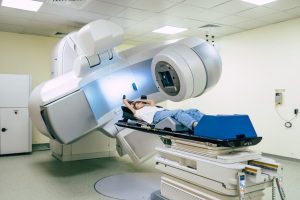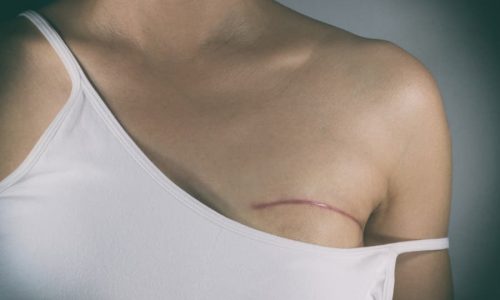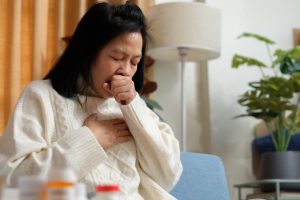
External vs. Internal Radiation for Breast Cancer
If you’ve been diagnosed with breast cancer, you may have heard radiation therapy discussed as part of your treatment plan. This approach is commonly used
HIPAA Alert: Potential Data Breach Learn More
Questions on Oncology, Hematology and/or Infusion Clinical Services due to COVID-19 Crisis – CALL 833-698-1623
Important Information for Our Patients Regarding the Coronavirus.
RCCA Providing Area Cancer Patients with Access to Care During Coronavirus Outbreak
RCCA Offering Patients Virtual Visits During Coronavirus Pandemic
Surgery can be a stressful experience. Life-saving procedures such as mastectomies come with questions about how to prepare, what to expect, and what comes next. If you feel worried or overwhelmed, clearly understanding the treatment and recovery can help. Regional Cancer Care Associates (RCCA) is one of the largest breast cancer care networks in the United States. It is a group of more than 100 medical oncologists and hematologists who treat patients who have solid tumors, blood-based cancers and benign blood disorders at more than 20 locations throughout New Jersey, Connecticut, Massachusetts, and the Washington, D.C., area.
Here, our leading oncologists discuss what to expect from recovery and treatment after a mastectomy.

A mastectomy is a surgery performed under general anesthesia, meaning that you will sleep through your operation. You will wake up in a recovery room. You will likely be connected to a variety of medical equipment, including:
You may feel dizzy or sluggish at first. A nurse will monitor you closely until you are awake enough to leave the room. At this point, most drips and tubes will be removed, though the IV drip may be left in if you are going to stay at the hospital. Wound drains may also stay in place until they stop draining fluid.
After receiving a mastectomy, you may be able to go home right away. If any lymph nodes were removed, however, or if you received immediate breast reconstruction, then a short hospital stay may be required. You will be admitted to a hospital room while physicians monitor you through the first stages of your recovery. Most hospital stays last three days or less. If you received reconstruction with tissue flaps, you might stay longer to ensure that the tissue flaps receive enough blood flow.
Once you are cleared to leave the hospital, the surgeon will provide instructions for recovery at home. Recovery guidance may cover topics such as:
Do not hesitate to ask questions if there is anything you’re unsure about. Following these instructions is key to ensuring a successful recovery without complications, so it’s important to understand what is being asked of you.
The surgeon will also provide information on possible complications after a mastectomy. If you notice any new symptoms or warning signs, speak with your physician immediately. The sooner treatment begins, the more successfully you and your physician can prevent serious health consequences.
Most patients feel tired and weak for a while after their surgery. This is a natural effect of your body diverting energy and resources to heal. This period lasts longer for some people than others, but you should inform your physician if it continues for more than a few weeks. They may suggest treatments to help you regain your strength.
An infected incision is a risk with any surgery, including a mastectomy. Contact your physician if you notice any symptoms, including:
If you develop an infection, you will need to take antibiotics. Usually, oral pills are enough to clear the infection. Severe cases may require a brief hospital visit to receive an IV drip.
Lymphedema is an uncommon side effect of surgeries in which lymph nodes are removed. Lymph fluid stops circulating correctly, leading to a buildup in neighboring tissue. Symptoms most often affect your hand, arm, chest, or armpit on the same side as your surgery, and include:
Lymphedema cannot be cured. Prompt medical intervention, however, can provide effective relief and prevent more serious symptoms from developing.
When you get home, you will need to take things gently. Get plenty of rest and try to eat a balanced diet while your energy returns. Do not lift heavy objects or drive until the incision is completely healed. The level of exertion you can manage will vary, and some people will be capable of more activity than others. Go slowly and pay attention to your limits. Some light exercise will help you recover faster, but you should stop if you feel any discomfort or strain.
Speak with your surgeon or physician about when it will be safe to do heavier work. They will guide you through a gradual return to normal activities. How long this takes can vary between individuals; the important thing is to follow your doctor’s guidance and not rush.
Your physician will schedule several follow-up appointments during your recovery. Unless any complications arise, the first is typically one to two weeks after surgery. The surgeon will examine you, make sure your wound is healing well, and discuss any further treatment that might be necessary. This is also an opportunity for you to ask questions about the next steps in your recovery. You should not hesitate to contact your physician if anything comes up, even if you do not have a follow-up appointment scheduled.
In some cases, cancer treatment continues after a mastectomy. This may be for a variety of reasons. If surgery could not remove all cancer cells, or if there is a risk that the cancer has spread outside the breast, then oncologists may recommend further treatment to eliminate any cancer that remains. They may also recommend treatments to reduce the risk of your cancer recurring. Treatments commonly administered after mastectomy include:
If you need further treatment after your mastectomy, you can speak with your oncologist about what to expect. There will likely be more follow-up appointments, new side effects to watch for, and unique instructions to prepare for your next round of treatment.
Once you have recovered from your mastectomy, it is time to plan your next steps. Some women choose to forego reconstruction by “going flat” or wearing a breast prosthesis. Many, however, opt for breast reconstruction. This is a surgical procedure that uses an artificial implant or a tissue graft to recreate the breast mound. The results can restore a more natural-looking appearance, which may be beneficial to your self-esteem.
If you decide on breast reconstruction, you can discuss your options with your physician. There are multiple breast reconstruction types depending on the type of mastectomy you received and the size of your breast. Each has a unique process and recovery.
When you understand what to expect from your recovery, you can approach life-saving procedures with greater confidence. Regional Cancer Care Associates is dedicated to educating patients about their conditions and treatments. RCCA specialists provide care to more than 30,000 new patients and 265,000 established patients each year. RCCA physicians offer patients innovative therapies, including immunotherapies and targeted therapy, cutting-edge diagnostics as well as access to approximately 300 clinical trials in community-based centers close to home.
For more information or to schedule an appointment,
call 844-346-7222. You can also schedule an appointment by calling the RCCA location nearest you.

If you’ve been diagnosed with breast cancer, you may have heard radiation therapy discussed as part of your treatment plan. This approach is commonly used

Cancer and its treatment often impact a person’s quality of life. In the case of prostate cancer, a man’s sex life may be affected. Sexual

Lung cancer is commonly considered a smoker’s disease, as cigarette smoking is the most significant risk factor for its development. However, not all cases are

Regional Cancer Care Associates is one of fewer than 200 medical practices in the country selected to participate in the Oncology Care Model (OCM); a recent Medicare initiative aimed at improving care coordination and access to and quality of care for Medicare beneficiaries undergoing chemotherapy treatment.